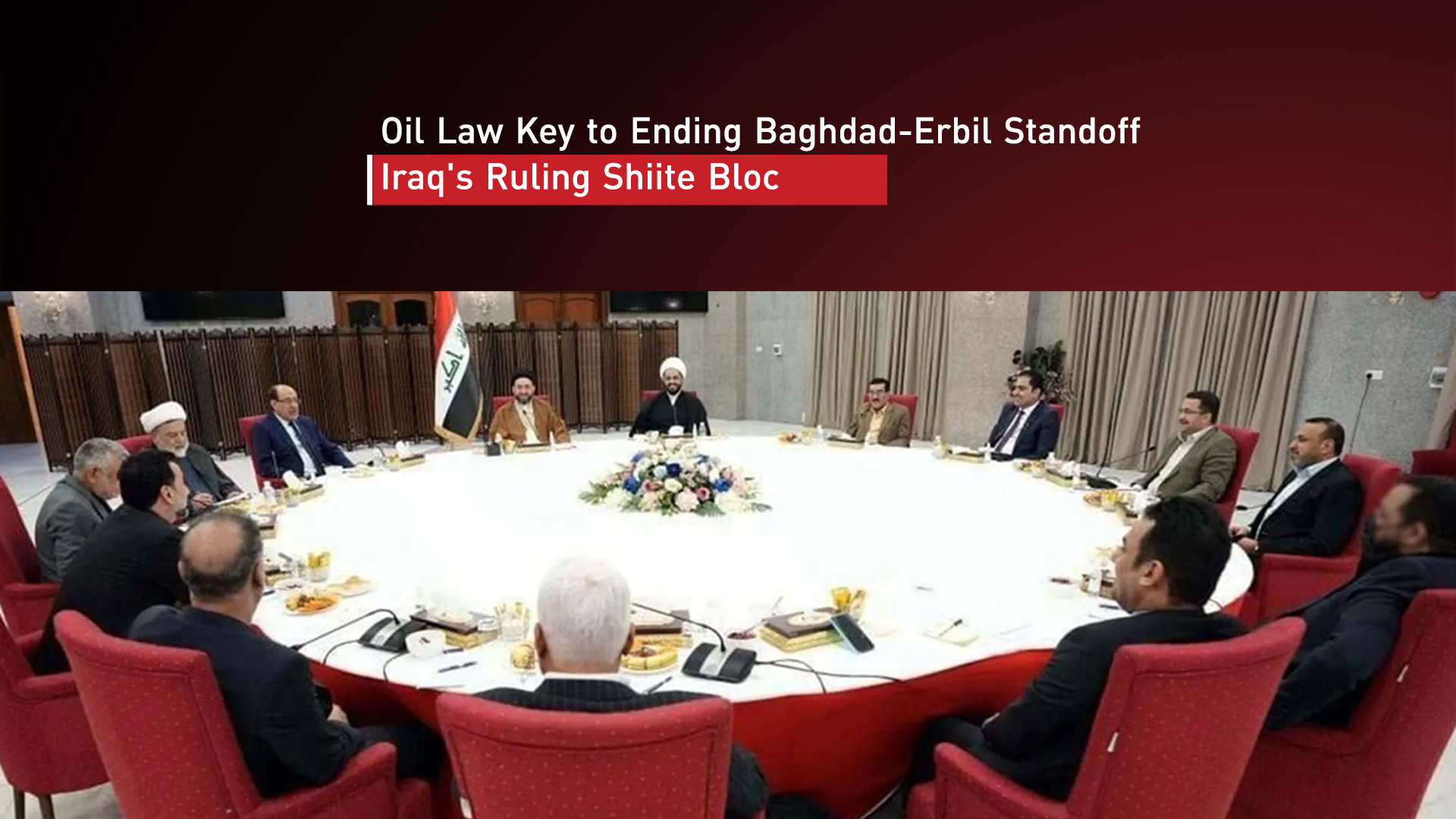'Oil Law Key to Ending Baghdad-Erbil Standoff,' Says Iraq's Ruling Shiite Bloc
Iraq’s Coordination Framework urged swift passage of the stalled Oil and Gas Law to resolve Erbil-Baghdad disputes and called for constitutional solutions to the Kurdistan Region's salary crisis, while warning against using state funds to sway upcoming elections.

By Kamaran Aziz
ERBIL (Kurdistan24) – In a bid to address the protracted disputes between Baghdad and Erbil, Iraq's Shiite Coordination Framework (SCF) on Monday called for the immediate enactment of the long-delayed Oil and Gas Law. The bloc also pressed for the resolution of issues related to the Kurdistan Region's public salaries in accordance with the Iraqi constitution, while cautioning against the use of financial resources to manipulate public opinion during the upcoming elections.
In a formal statement, the Coordination Framework confirmed it held its regular meeting at the Baghdad office of prominent Shia leader Ammar al-Hakim, with Iraqi Prime Minister Mohammed Shia al-Sudani in attendance. The agenda covered a range of political, service-related, and electoral developments.
Concerning the situation with the Kurdistan Region, the Framework reaffirmed the necessity of resolving all national matters based on constitutional principles and existing laws. It emphasized the federal government’s duty to guarantee the rights of all Iraqi citizens and to dismantle barriers to equitable governance.
Crucially, the statement highlighted the "necessity for the Iraqi Council of Representatives to enact the Oil and Gas Law," labeling it as "the key to resolving the lingering issues between Baghdad and Erbil."
The Oil and Gas Law, first proposed more than a decade ago, remains stalled due to disagreements over revenue sharing, management of natural resources, and regional autonomy. Its passage is viewed as essential for clarifying roles and responsibilities between the federal government and the Kurdistan Regional Government (KRG), especially in the wake of disputes over oil exports and budget allocations.
On the topic of elections, the Coordination Framework reiterated its full support for holding the polls as scheduled and encouraged all Iraqi citizens to update their biometric voter cards. The statement called on voters to participate "actively, responsibly, and in large numbers" to strengthen democratic governance.
The Framework also issued a strong warning against the misuse of financial resources for electoral gain, denouncing any attempt to use "political money" to influence public opinion.
As tensions persist over unpaid salaries in the Kurdistan Region and broader questions about resource control, the Coordination Framework's renewed push for the Oil and Gas Law could signal a crucial step toward resolving longstanding federal-regional disputes.